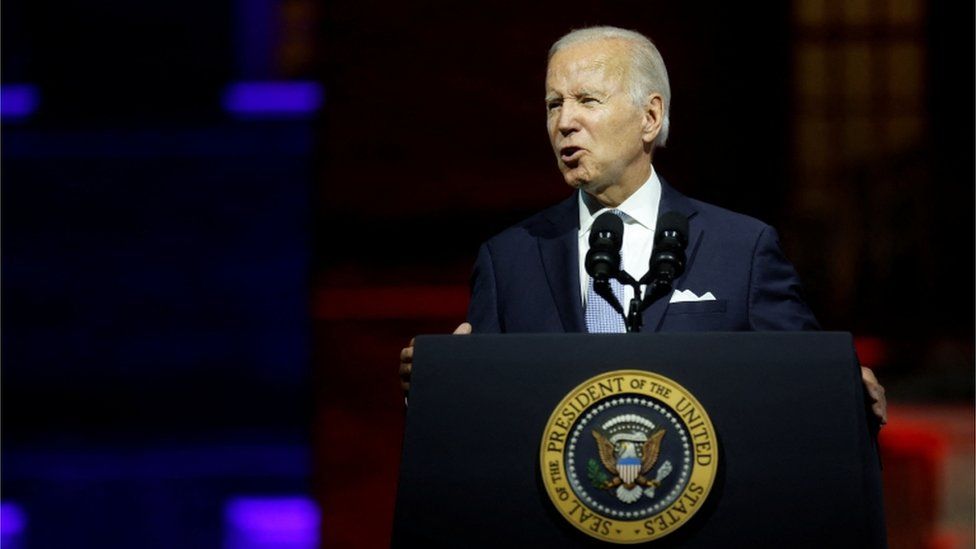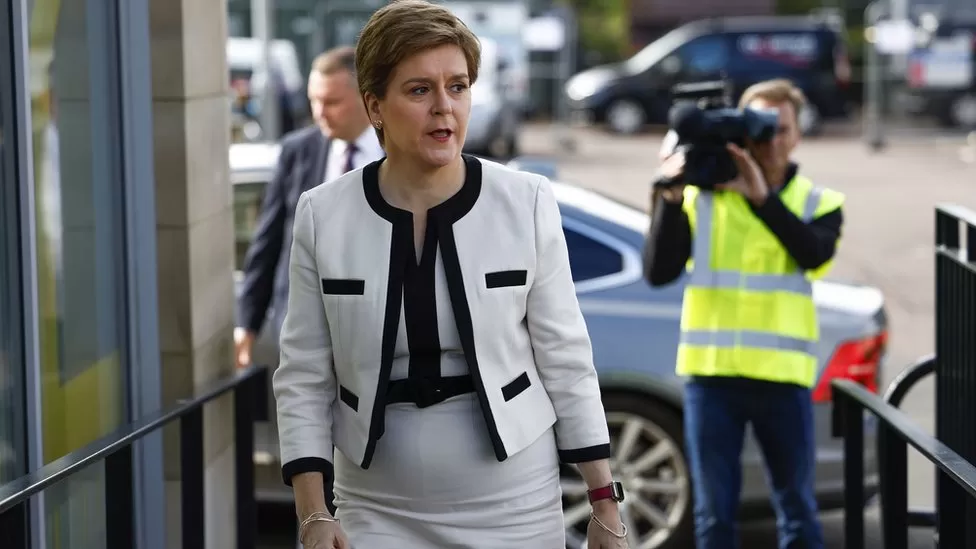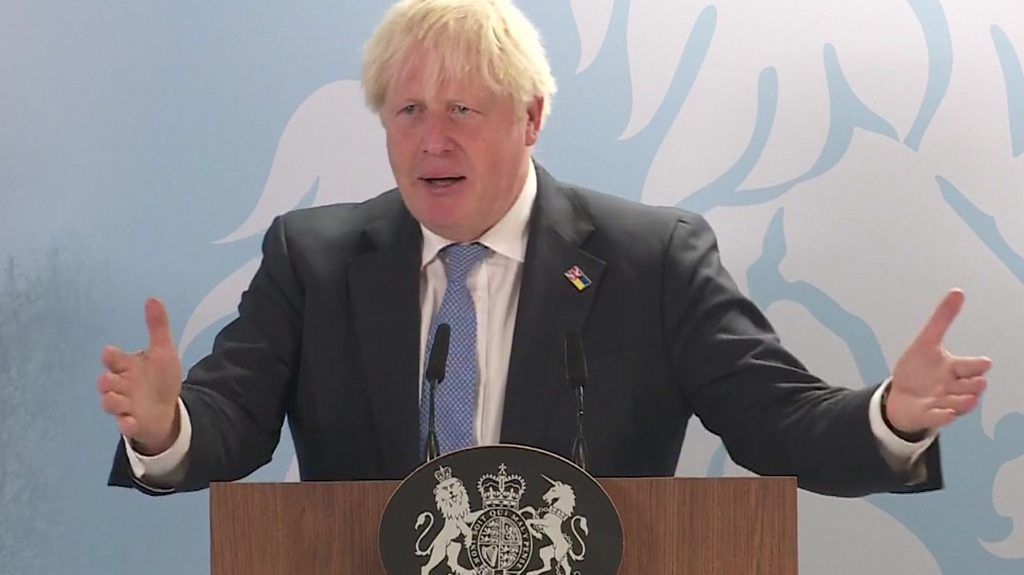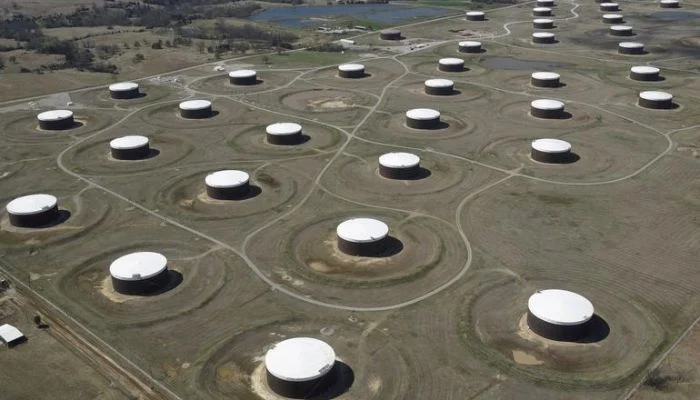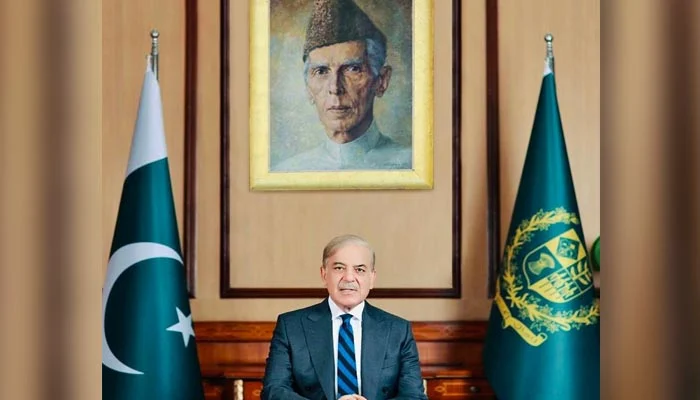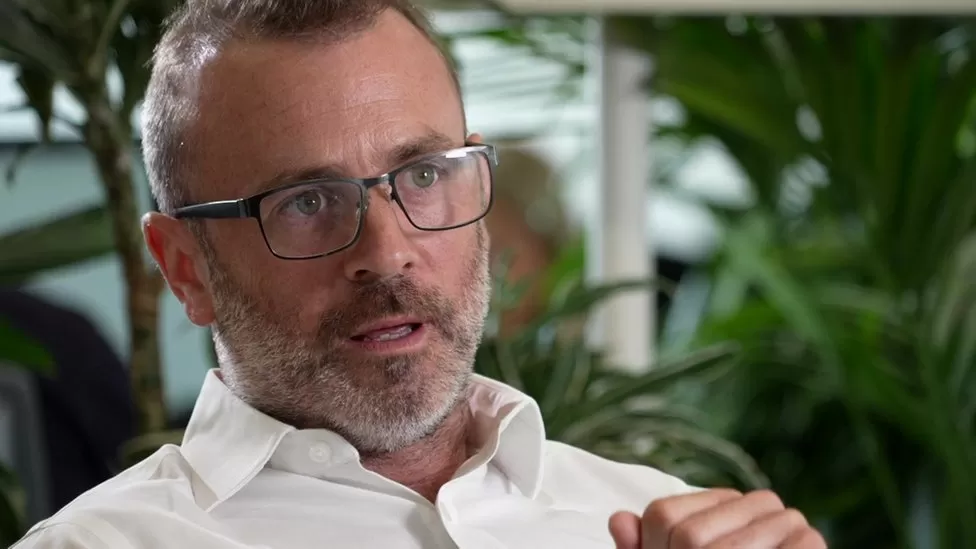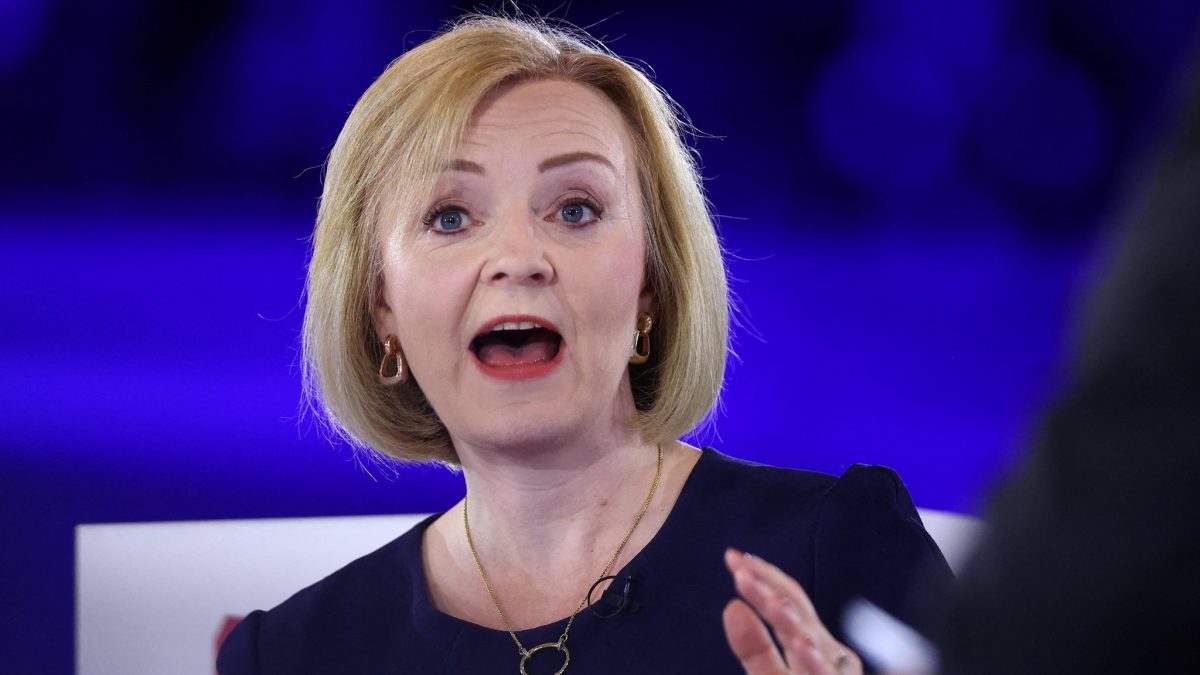“Maga forces are determined to take this country backwards,” he said in a primetime speech in Pennsylvania.
Top Republican Kevin McCarthy hit back that Mr Biden had “severely wounded America’s soul”.
The duelling speeches come two months before mid-term elections, which will decide the power balance in Washington.
The Democratic president delivered his speech on Thursday night from Independence Hall in Philadelphia, where the US Declaration of Independence was signed. He picked up his 2020 campaign theme of restoring the “soul of America”.
He said he was not condemning all 74 million Americans who voted for Mr Trump two years ago. “Not every Republican, not even a majority of Republicans, are Maga Republicans,” he said.
“But there’s no question,” Mr Biden continued, “that the Republican party today is dominated, driven and intimidated by Donald Trump and the Maga Republicans, and that is a threat to this country.”
The president said Trump supporters thought of the mob who stormed the US Capitol last year as patriots rather than insurrectionists.
“For a long time,” he continued, “we told ourselves that American democracy is guaranteed. But it’s not. We have to defend it. Protect it. Stand up for it. Each and every one of us.”
Throughout the speech someone was heard heckling and sounding a bullhorn, according to a BBC reporter at the scene.
Mr Biden addressed the disruption twice, saying the second time: “They’re entitled to be outrageous. This is a democracy.”
The president, who came into office pledging to unite the country, has recently sharpened his rhetoric against supporters of Mr Trump.
Last week Mr Biden equated what he called “extreme” Republicans with “semi-fascism”.
Republican calls for Biden apology
Mr McCarthy, who is Republican minority leader in the US House of Representatives, spoke shortly beforehand from Mr Biden’s hometown of Scranton, Pennsylvania.
The California congressman said the president “has chosen to divide, demean, and disparage his fellow Americans”.
“Why? Simply because they disagree with his policies. That is not leadership.”
He called on Mr Biden to “apologise for slandering tens of millions of Americans as fascists”.
The top Republican said the Biden presidency had saddled America with soaring inflation, open borders, Covid school shutdowns that damaged children’s learning, the “botched” withdrawal from Afghanistan, and the deadliest national crime wave in two decades.
“In the past two years,” he said, “Joe Biden has launched an assault on the soul of America, on its people, on its laws, on its most sacred values. He has launched an assault on our democracy. His policies have severely wounded America’s soul, diminished America’s spirit and betrayed America’s trust.”
For the first time in nearly a year, the president’s political fortunes appear to be on an upswing. His approval ratings have rebounded from truly abysmal to merely bad.
What’s more, Mr Biden’s personal struggles don’t seem to be translating into ballot box poison for Democrats. Time and time again in recent months, Democrats have over-performed in head-to-head matchups with Republicans.
Mr Biden has frequently been a bystander to this reversal of fortune – because of his recent Covid infection and the inherent limits of presidential power – but taking credit for good news out of one’s control has never stopped a politician before.
Thursday’s speech is as much about setting the conditions to get credit if things continue to go well as it is to highlight the threats to American democracy or to frame the debate for the home-stretch mid-term campaigns.
And if things go bad once again, he was going to get the blame anyway.
Voter perspectives
But voters the BBC heard from in the small town of Newfoundland, 120 miles (190km) north of where President Biden spoke, did not sound worried about a purported threat to democracy.
The price of petrol was the main concern for Americans at the county fair there. Several voters directly contrasted the economy under President Trump with the situation now.
But another self-described lifelong Republican said he would never vote for Mr Trump or any of the candidates he has endorsed.
Mr Trump’s name will not be on any ballots in November, but his presence is inescapable.
He will be headlining a rally in the Scranton area this weekend. Several of the Republican candidates in this state won their nominations thanks to the former president’s support.


